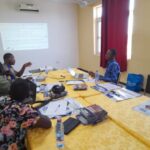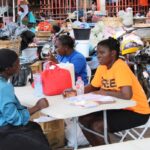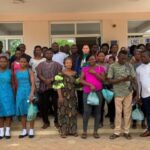Working with other Civil Society Organizations (CSOs), the Legal Resources Centre contributed to the Civil Society Report on the Implementation of the ICCPR [International Covenant on Civil and Political Rights]. That report was delivered during the Initial Period Report of Ghana at the 115th Session of the Human Rights Committee, which was held in October 2015 in Geneva, Switzerland.
The CSOs completing this report provided the Human Rights Committee with a list of issues confronting and challenging Ghana in its implementation of the International Covenant on Civil and Political Rights, and questions regarding Ghana’s commitment to the Covenant were also included.
 The report addressed a range of issues important to human rights in Ghana. This included ongoing issues related to the equal treatment of men and women; the protection of gay, lesbian, bisexual, and transgender Ghanaians; the protection of sex workers; and the protection of persons living with HIV and AIDS. The CSOs drafting the report challenged the Human Rights Committee to question whether Ghana was providing the safeguards required by those minority groups, whether Ghana was planning to modify its Constitution to prohibit discrimination against those groups, and whether Ghana was able to provide evidence of its efforts to protect those groups.
The report addressed a range of issues important to human rights in Ghana. This included ongoing issues related to the equal treatment of men and women; the protection of gay, lesbian, bisexual, and transgender Ghanaians; the protection of sex workers; and the protection of persons living with HIV and AIDS. The CSOs drafting the report challenged the Human Rights Committee to question whether Ghana was providing the safeguards required by those minority groups, whether Ghana was planning to modify its Constitution to prohibit discrimination against those groups, and whether Ghana was able to provide evidence of its efforts to protect those groups.
The CSOs also assessed Ghana’s commitment to the constitutional “right to life” (in Article 13). Their report questioned how the state could both contain that constitutional provision and permit the execution of citizens and allow the atrocious treatment of death-row inmates. It also questioned the use of lethal force, which is permissible in a range of scenarios.
‘Witch camps’ and ‘prayer camps’ (for people with mental disabilities) were also referenced in the report. While some protections are provided for persons with disabilities under Ghanaian law, the CSOs questions the effectiveness and efficiency of its implementation. The CSOs also assessed the protections provided for the women forced into those ‘witch camps.’
The CSOs’ report reviewed Ghana’s approach to torture, police brutality, and the mistreatment of prisoners (and the terrible conditions of those prisoners). As the report referenced, prisons are overcrowded—and prisoners receive insufficient food, toiletry facilities, and medical treatment. The report suggested the Human Rights Committee question Ghana on the safeguards it has set to prevent torture, the ways claims of police brutality are investigated, and the ways it is bettering prisons.
The CSOs also questioned the actions being taken by Ghana to prevent slavery and forced labour, concentrating on ‘trokosi’ and the forced labour of girls. Though slavery and forced labour are banned by the Constitution, the CSOs suggested the Human Rights Committee question the steps being taken to end the ‘trokosi’ practice.
Reviewing Ghanaians rights to free and fair trials and the rule of law and their freedom from arbitrary detention, the CSOs reviewed the cases from the 2014 Justice for All Program (which described the treatment and trials of certain Ghanaians). The report suggested the Human Rights Committee question the way prisoners are allowed to challenge the lawfulness of their detention and petition for release from unlawful confinement. The report also recommended the Human Rights Committee question the ways the government is improving access to free, fair, and speedy trials for accused persons.
The thorough report also addressed Ghana’s approach to the right to privacy, the rights of children and families, the freedom of opinion and expression, and the freedom of assembly and association. The CSOs assessed Ghanaian electoral rights as well.
As the Ghana News Agency (http://www.ghananewsagency.org/social/ghanaian-csos-earns-recognition-at-un-177th-session-105597) described, the Legal Resources Centre and all the CSOs responsible for that report were recognized for their “immense contribution to the review of Ghana’s implementation of the ICCPR” by the United Nations’ 177th Session of the International Covenant on Civil and Political Rights.
The advocates and associates at the Legal Resources Centre appreciate the delegates’ recognition of their contribution to the Civil Society Report on the Implementation of the ICCPR.
The Executive Director of the Legal Resources Centre believes civil society organizations help hold the government accountable—and they are important institutions in Ghana’s human rights system (which includes the International Covenant on Civil and Political Rights).




